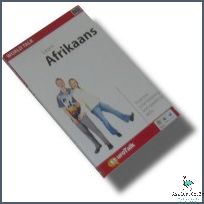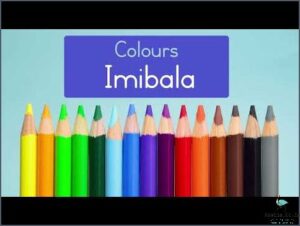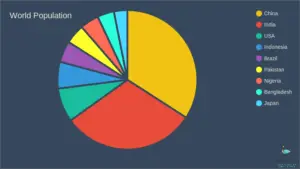
In South Africa, Afrikaans is one of the eleven official languages. It is a West Germanic language, spoken by around 6 million people. It is related to Dutch, German and English.
If you want to say "hello" in Afrikaans, you can say "hallo" or "goeie dag". "Goeie dag" is more formal. You can also say "more" which means "hello" in Afrikaans.
If you want to say "thank you" in Afrikaans, you can say "dankie" or "baie dankie". "Dankie" is more informal.
If you want to say "please" in Afrikaans, you can say "asseblief".
Here are some other useful Afrikaans phrases:
Yes – ja
No – nee
Excuse me – verskoon my
I’m sorry – jammer

I don’t understand – ek verstaan nie
Do you speak English? – Praat jy Engels?
What is your name? – Wat is jou naam?
My
Contents
Say In Afrikaans
In Afrikaans kan jy sê "Goeie dag". ‘Goeie dag’ is ‘n bekende Afrikaanse groet wat gereeld gebruik word. Dit is ‘n algemene manier om iemand te verwelkom. ‘Goeie môre’ is ook ‘n gereelde Afrikaanse groet wat gebruik word. Dit is ‘n manier om iemand ‘n goeie dag te wens. Afrikaans is ‘n taal wat gesproke word in Suid-Afrika, Namibië, en ander Afrika-lande. Dit is ‘n interessante taal wat ‘n verskeidenheid Afrika-tale insluit.
Overview of Afrikaans language and its origins
Afrikaans is an official language of South Africa, spoken by over 7.2 million people in the country. It is a West Germanic language, derived from Dutch, that has been spoken in South Africa since the 1600s. It is also spoken in Namibia, Botswana, and parts of Zimbabwe, as well as by South African emigrants around the world.
The first use of Afrikaans as a distinct language dates back to the mid-17th century, when it developed from the Dutch dialects spoken in the South African provinces. This can be attributed to the Dutch settlers who brought their language to the region when they arrived in the 1600s. The language has since evolved to become unique, and has been heavily influenced by indigenous African languages, such as Khoisan, Xhosa, and Zulu.

Afrikaans is a simple and straightforward language, making it easy to learn and understand. It is closely related to Dutch and shares many of the same words and grammar rules. However, it is a distinct language and has a unique vocabulary and pronunciation. It also has some features that are unique to South African culture and history, such as words for things like apartheid and ubuntu.
Afrikaans is also a highly versatile language. It is widely used in literature, poetry, and music, and is often used as a medium of instruction in South African schools. It is also the language of choice for many South African businesses and government organizations.
Afrikaans is a vibrant and diverse language, and its origins and history are closely tied to the history of South Africa. It is a language that has been shaped by many different cultures, and its continued development is an important part of South African culture.
Pronunciation and grammar of Afrikaans
Afrikaans is a language spoken mainly in South Africa, Namibia, and parts of Botswana and Zimbabwe. It is a West Germanic language, closely related to Dutch and English. While it has many similarities with these languages, Afrikaans has its own unique pronunciation and grammar rules. This article will provide a brief overview of the pronunciation and grammar of Afrikaans.
When it comes to pronunciation, Afrikaans is quite different from English and Dutch. The most notable difference is that Afrikaans has more vowel sounds. For example, the “oo” sound in English is represented by three different sounds in Afrikaans, depending on the context. Additionally, Afrikaans has a few vowel combinations that are not present in English or Dutch. It is therefore important to take the time to learn the correct pronunciation of each sound in order to be understood.
When it comes to grammar, Afrikaans has a few differences from English and Dutch. For one, it has a more complex system of verb conjugation. Additionally, Afrikaans uses the definite article “die” rather than “the” for nouns. Furthermore, nouns in Afrikaans are always preceded by a determiner, such as “een” (one). Finally, Afrikaans uses a lot of compound nouns, which are made up of two or more words.
Overall, Afrikaans is a unique language with its own unique pronunciation and grammar rules. While it may take some time to learn the language, it is certainly worth the effort. With a bit of practice, anyone can learn to understand and speak Afrikaans fluently!
Essential phrases and words in Afrikaans

Afrikaans is a beautiful language with a rich history and culture. It is one of South Africa’s official languages, and is spoken by around seven million people in the country and its neighboring countries. Afrikaans is a unique language, with many of its words and phrases having been derived from Dutch, Malay and Portuguese. Knowing some essential phrases and words in Afrikaans can help you to better understand and appreciate the language and culture of this amazing region.
One of the most important phrases in Afrikaans is “Goeie dag”, which is the equivalent of the English “Good day”. This phrase is used to greet someone and is used in both formal and informal settings. “Goeiemôre” and “Goeienaand” are used to greet people in the morning and evening respectively.
Another essential phrase in Afrikaans is “Dankie”, which is the equivalent of the English “Thank you”. This is used to express appreciation and gratitude. “Dankie baie” is used to emphasize your thanks.
“Verskoning” is the Afrikaans word for “Excuse me” and is used to politely ask for attention or forgiveness. “Jammer” is the equivalent of the English “Sorry” and is used to express regret or apology.
When meeting someone for the first time, it is polite to introduce yourself. “My naam is…” is the Afrikaans phrase for “My name is…”. “Hoe gaan dit?” is the equivalent of “How are you?”, and is used to show interest in the other person.
In addition to essential phrases, there are also a number of words in Afrikaans that are useful to know. “Ja” is the word for “Yes”, while “Nee” is “No”. “Hier” is “Here”, while “Daar” is “There”. “Goeie” is the Afrikaans word for “Good”, while “Sleg” is “Bad”.
Learning these essential phrases and words in Afrikaans can help you to better appreciate the language and culture of this amazing region. Knowing these phrases and words can also help you to communicate more effectively with native speakers. Whether you are a traveller, a student or an enthusiast, learning Afrikaans can open the door to a whole new world of experiences.
Conclusion
Afrikaans is a South African language spoken mainly in the country. It is the first language of about 25% of the population. The language has been influenced by Dutch and English, and there is also a significant Portuguese influence. There are about 20 million speakers of Afrikaans, making it the second most spoken language in Africa after Swahili. The language is used in the media, the arts, and in business.
Afrikaans is a vibrant and versatile language that is well-suited for communication in South Africa. It has a strong Dutch influence, making it easy to understand for speakers of Dutch, and it also has a strong English influence, making it easy to understand for speakers of English. Afrikaans is also popular in Portugal, where it is used as a second language. Afrikaans is a useful tool for communication in South Africa, and it is a popular language among South African speakers.




